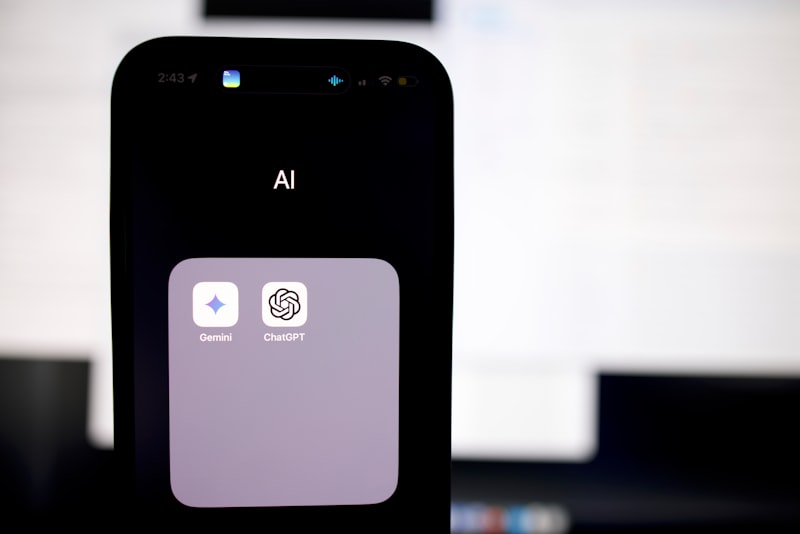Introduction:
In today’s digital age, advanced technologies like artificial intelligence (AI) have transformed our lives in various ways. One such AI model, known as ChatGPT, has gained significant attention due to its language generation capabilities. However, beneath its impressive abilities lies a potential threat to our democratic processes. In this article, we delve into how ChatGPT can inadvertently hijack democracy and explore the implications of this phenomenon.
The Influence of Manipulative Content:
ChatGPT’s natural language processing abilities enable it to generate persuasive content that appears human-crafted, capable of influencing public opinion. This raises concerns regarding the dissemination of misinformation, manipulation of political narratives, and the erosion of trust in democratic institutions. With just a few lines of code, malicious actors could exploit ChatGPT to create tailored messages that mislead and manipulate unsuspecting individuals.
The Polarization Effect:
One of the most alarming aspects of ChatGPT’s influence on democracy is its potential to exacerbate polarization. By tailoring content to specific demographics or echo chambers, ChatGPT can reinforce existing biases, deepen divisions, and hinder constructive dialogue. When individuals are bombarded with personalized content that aligns solely with their viewpoints, it becomes increasingly challenging to foster a sense of unity and compromise necessary for a healthy democratic society.
Undermining Authenticity and Accountability:
Authenticity and accountability are cornerstones of a functioning democracy. However, ChatGPT’s ability to mimic human language poses a threat to these ideals. By generating content that seems genuine, ChatGPT blurs the line between human-created and AI-generated information. This makes it difficult for users to discern fact from fiction, eroding trust in online discourse and traditional media sources.
Safeguarding Democracy in the AI Era:
While the risks associated with ChatGPT and similar AI models are concerning, proactive measures can be taken to safeguard democracy. First and foremost, it is essential to raise awareness about the capabilities and limitations of AI systems like ChatGPT. Educating the public on how to identify and critically evaluate AI-generated content can empower individuals to make informed decisions.
Furthermore, developers and policymakers must work together to implement robust safeguards, such as fact-checking mechanisms and transparency standards for AI-generated content. Enhancing regulations surrounding the use of AI in political campaigns and online platforms can help mitigate the potential for manipulation and restore trust in democratic processes.
Conclusion:
Unveiling the Dark Side: How ChatGPT Exerts Influence and Challenges Democracy
Contents
- 1 Unveiling the Dark Side: How ChatGPT Exerts Influence and Challenges Democracy
- 2 The Rise of Artificial Intelligence: Is ChatGPT Threatening Democratic Processes?
- 3 Behind the Screen: The Impact of ChatGPT on Political Discourse and Decision-Making
- 4 ChatGPT’s Role in Polarization: Can Democracy Survive?
Have you ever wondered about the hidden forces that shape our digital landscape? In this article, we delve into the captivating world of ChatGPT, an artificial intelligence language model developed by OpenAI. Beyond its remarkable abilities, there is a darker side to ChatGPT that warrants our attention. Join us as we explore how ChatGPT exerts influence and poses challenges to democracy.
ChatGPT has taken the internet by storm with its ability to generate human-like text, engage in conversations, and answer complex questions. It’s like having a knowledgeable companion at your fingertips, ready to assist you around the clock. However, beneath the surface lies a potential threat to the democratic process.
One of the key concerns stems from the issue of content manipulation. ChatGPT’s vast knowledge base can be harnessed to spread disinformation or propaganda. With its ability to imitate human speech patterns, it becomes increasingly difficult to distinguish between genuine voices and those created by AI. This poses a significant challenge to the integrity of democratic discourse.
Moreover, the widespread use of ChatGPT raises questions about accountability and transparency. As an AI language model, it is constantly learning from the data it processes, including both accurate and biased information. If left unchecked, these biases could seep into the content generated by ChatGPT, influencing public opinion and undermining the democratic ideals of diversity and fairness.
Furthermore, ChatGPT’s immense popularity gives rise to concerns regarding privacy and consent. Users often interact with ChatGPT without fully understanding the implications of their conversations. Personal data and sensitive information shared during these exchanges could potentially be exploited, compromising individual privacy rights.
In light of these challenges, it is imperative that we develop robust safeguards and ethical guidelines to ensure the responsible deployment of AI technologies like ChatGPT. Transparency in how the model operates, periodic audits to detect biases, and user education can help mitigate the potential risks it poses.
As we navigate the digital landscape, we must remain vigilant about the influence of AI systems like ChatGPT. By embracing technological advancements responsibly and addressing the challenges they present, we can safeguard the principles of democracy and ensure a future where both humans and machines coexist harmoniously.
The Rise of Artificial Intelligence: Is ChatGPT Threatening Democratic Processes?
In today’s rapidly evolving technological landscape, one phenomenon that has garnered significant attention is the rise of artificial intelligence (AI). AI’s transformative power is evident in various sectors, from healthcare to finance, and it has also made its way into democratic processes. However, as AI becomes increasingly integrated into our lives, concerns arise regarding its impact on democracy. One such concern revolves around the question: Is ChatGPT threatening democratic processes?
ChatGPT, an advanced AI model developed by OpenAI, has gained prominence for its ability to generate human-like text and engage in conversation. While ChatGPT offers immense potential for improving customer service, content creation, and other applications, its influence on democratic processes warrants scrutiny.
The inherent nature of ChatGPT raises questions about the authenticity and transparency of information disseminated through this AI-powered system. As ChatGPT generates text based on patterns and data, it lacks the ability to critically evaluate the accuracy or bias of the information it provides. This can potentially result in the spread of misinformation or manipulation of public opinion, posing a threat to the democratic process.
Furthermore, the widespread use of ChatGPT in political campaigns and discourse could have unintended consequences. AI-generated content may mimic human communication, but it inherently lacks the empathy, values, and judgment that humans possess. This raises concerns about the potential for AI systems like ChatGPT to exploit vulnerabilities in the democratic process, such as spreading propaganda or engaging in automated astroturfing.
Another aspect to consider is the concentration of power. With AI models like ChatGPT being developed and controlled by a few dominant entities, there is a risk of consolidating decision-making power in the hands of a select few. This concentration of power contradicts the principles of democracy, which emphasize a decentralized and participatory approach. If unchecked, the influence of AI systems like ChatGPT may undermine the diversity of voices and perspectives essential for democratic processes to thrive.
While the rise of artificial intelligence, exemplified by ChatGPT, offers significant advancements and possibilities, it also raises legitimate concerns about its impact on democratic processes. The lack of critical evaluation, potential for misinformation, and concentration of power are all factors that need careful consideration. As AI continues to evolve, it is crucial to strike a balance between technological innovation and safeguarding the democratic principles that underpin our societies.
Behind the Screen: The Impact of ChatGPT on Political Discourse and Decision-Making
Have you ever wondered about the behind-the-scenes influence on political discourse and decision-making? Enter ChatGPT, an advanced language model that has revolutionized the way we interact and communicate. With its remarkable capabilities, ChatGPT has made a significant impact in shaping political discussions and influencing decision-makers.
But what exactly is ChatGPT? It’s an AI-powered tool developed by OpenAI that can generate human-like text based on prompts provided to it. This means that ChatGPT can engage in dynamic conversations, answer questions, and provide insightful information on a wide range of topics, including politics.
So how does ChatGPT impact political discourse? Firstly, it empowers individuals by providing them with instant access to vast amounts of information. Whether you’re a curious citizen or a seasoned politician, ChatGPT enables you to gain valuable insights and stay up-to-date with the latest developments. By fostering informed discussions, it enhances political literacy and encourages active participation in democratic processes.
Moreover, ChatGPT acts as a bridge between politicians and the public. It enables policymakers to gauge public opinion and gather feedback on important issues. Through interactive conversations, citizens can express their concerns, share their perspectives, and have their voices heard. This two-way communication strengthens the democratic fabric and promotes transparency in decision-making.
The impact of ChatGPT goes beyond mere information exchange. It has the potential to transform political campaigns and policy formulation. With its ability to analyze vast amounts of data and generate persuasive arguments, it becomes a valuable tool for politicians seeking to craft compelling messages and persuade voters. By leveraging ChatGPT, politicians can tap into the collective intelligence and opinions of the public, enabling them to make more informed decisions.
However, as with any technology, there are challenges to consider. The authenticity and reliability of information generated by ChatGPT are crucial concerns. It is essential to use it as a supplementary tool, not as a definitive source. Human oversight and critical thinking are vital to ensure the accuracy and fairness of the information generated.
ChatGPT has transformed political discourse and decision-making processes. It empowers individuals, fosters informed discussions, and provides valuable insights to policymakers. However, its impact must be carefully managed to maintain transparency, authenticity, and democratic values. As we navigate this new era of AI-powered communication, it is crucial to strike a balance between technological advancements and human judgment.
ChatGPT’s Role in Polarization: Can Democracy Survive?
In today’s fast-paced digital era, where technology continues to shape our lives, artificial intelligence (AI) has emerged as a powerful tool, revolutionizing various aspects of society. One notable AI advancement is ChatGPT, an advanced language model developed by OpenAI. While ChatGPT has garnered immense popularity for its ability to generate human-like text and assist users in various tasks, it also raises concerns about its role in the polarization of public opinion and the potential impact on democracy.
With its conversational style and vast knowledge, ChatGPT can engage with users in discussions on a wide range of topics. However, this unrestricted access to information brings both benefits and risks. On one hand, ChatGPT allows individuals to explore diverse perspectives and develop a deeper understanding of complex issues. It encourages open dialogue and provides opportunities for learning and growth. On the other hand, the model’s responses are influenced by the data it was trained on, which may include biased or polarizing content. This can inadvertently reinforce existing beliefs and contribute to the echo chamber effect that perpetuates societal divisions.
Polarization poses a significant challenge to democratic societies. When people are exposed only to viewpoints that align with their own, they become less willing to listen to opposing arguments or consider alternative perspectives. This exacerbates ideological divides and hampers constructive dialogue, eroding the foundations of democracy. The concern arises when ChatGPT, as a widely accessible AI model, contributes to this polarization by reinforcing pre-existing biases and limiting exposure to diverse opinions.
To address this issue, it is crucial to ensure the ethical development and deployment of AI systems like ChatGPT. Developers must prioritize transparency, accountability, and fairness, incorporating mechanisms to identify and mitigate biases within the training data. Additionally, users should be made aware of the limitations of AI models and encouraged to seek out multiple sources of information to form well-rounded opinions.




